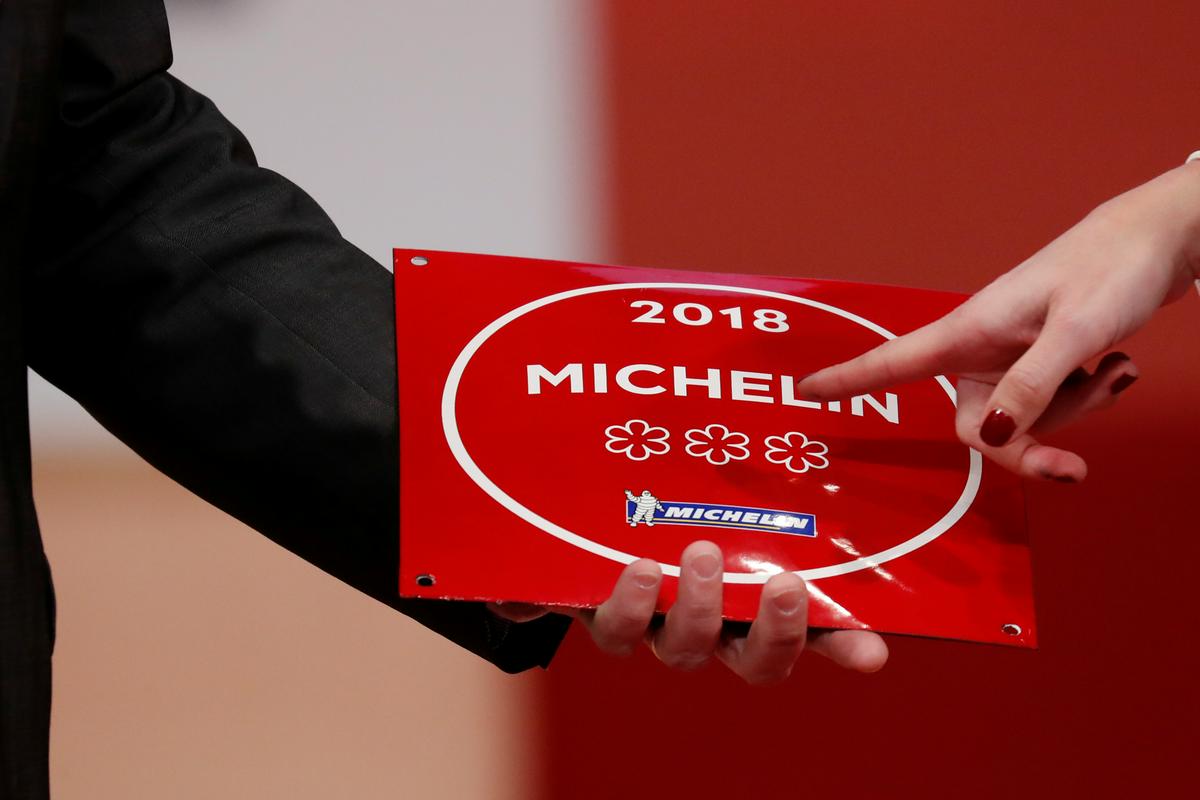
The reason certainly does not lie in the level of restaurant quality, since the general opinion among experts is that there are at least three restaurants in Slovenia that easily meet the criteria. At least three.
The first place definitely goes to Hiša Franko, the world's 69th best restaurant as chosen by 50 Best Restaurants, which also crowned its manager and owner Ana Roš as the current best female chef in the world.
As for others, it is a matter of debate – in some cases there are problems with consistency and accuracy, elsewhere with the server staff, in others the Michelin inspectors might not have liked the ambience, but the competition for at least one star would definitely include restaurants Strelec, JB, Atelje (all in Ljubljana), Grič (Horjul), Pr 'Lojzetu (Zemono), Hiša Denk (Upper Kungota) and Ošterija Debeluh (Brežice).
Where are the inspectors?
Despite rumours from last spring that Michelin's isnpectors would finally come to Slovenia due to diplomatic efforts – primarily by Roš, who gave all the necessary contacts and information to Slovene government, this may not have been the case.
The Slovenian Tourist Board and the Ministry of the Economy could have the largest impact on starting the project. Taking the example of Croats into consideration, the country would have to pay a certain sum to Paris, which would open the door to Slovenia.
This amount is relatively high (we are talking about approximately 100,000 euros), and yet not as high that it could not be found in the budget, a large part of which is supposed to be devoted to culinary and boutique tourism.
Where exactly went wrong is not clear – some say that Slovenia was not willing to pay the amount, others claim that the matter is still "in the process".
The only ones without a star in the region
In any case, the fact is that Slovenia is currently the only country in the region that has no mention in Michelin. Italy has a multitude of stars, of course, Austria has 20 restaurants with Michelin stars, Budapest has four, and Croatia has three such restaurants since this year.
Some believe that the problem is in a too small market, but this argument does not hold completely, as it would be possible for Michelin to issue only an online guide for Slovenia, as they did for Croatia last year, and the country is interesting enough tourism-wise.
Croats: It is unfair that Slovenia is ignored
However, as the Croatian culinary blog Kult plave kamenice writes, Michelin is one of those organizations that are strongly subjected to lobbying, which in practice shows that the star is also sometimes awarded to an unopened restaurant, or Michelin takes over Thailand after its tourism board has paid millions of euros for the guide.
Kult plave kamenice also recalls last year's "stupid and unprofessional" distribution of recommendations for Croatian restaurants, when Michelin included some restaurants that had already closed up, or those that are not even taken seriously by Croatian reviewers.
Missed opportunity
"Nobody has bombarded Michelin's headquarters in Paris persistently enough with information about the Slovenian gastronomic scene, which is – let's emphasize – in many ways more advanced and more sophisticated than the Croatian but does not have a single star, while Croatia has three and will probably get more next year,” states the blog which describes the Slovenian culinary scene as one of the most exciting in Europe.
"It seems that the Slovenian government missed the opportunity for Michelin's engagement, unlike what our government did three years ago, when the inspectors first came to Croatia. Now they come regularly, owing to annual payment to Michelin by our state," writes the portal, which underlines that the decision has proved to be extremely successful, as Michelin stars are still the strongest weapon for the promotion of Croatian gastronomy. Two of the three Michelin-starred restaurants are already fully booked until the end of autumn.
More freedom with no stars
Of course, Michelin's stars by themselves are not an absolute guarantee of quality. And in many cases they can even be a burden for chefs and restaurants by subjecting them to extreme pressure and constant fear of inspectors.
As Roš said upon hearing the news about no stars for Slovenia, "nowadays some of the world’s best chefs are returning their stars". "We do not need to return them because we do not have them, but without them we have the freedom for our own creativity and for a world without rules."
All this is true and Roš, due to her reputation and global visibility, does not need to fight for guests anymore. And Hiša Franko is even without a single star fully booked until the end of the year.
That said, it is also indisputable that the stars would automatically put Slovenia on the global gastronomic map, bring more demanding guests with deeper pockets to the restaurants, and attract foodies to the country, as this segment of visitors usually spends the most. And this is precisely the goal of every country that markets itself as a boutique destination rather than the massive one.

































































